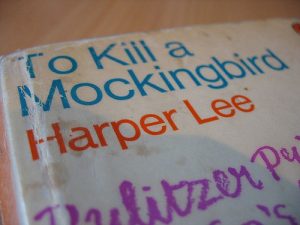Original post- 2/11/18
I had never thought about publishers contribute to censorship before. After reading The Dearth of Native Voices in Young Adult Literature by Metzger and Kelleher I realized that publishers play a major role in censoring content. As shown in the article, Native Americans are not getting published and are not able to accurately tell their stories. Instead, white Americans are telling Native stories. Stories that properly portray different cultures are needed so kids are able to see themselves in different types of media. Stereotyped versions are being published and put into schools causing students to believe false information about different types of people.
In the article they talk about how it is up to teachers to find diverse books. I think that it shouldn’t be fully up to the teachers because publishers need to make these books more available to the public. With all the work that educators have to do and all the time they spend working, it shouldn’t be the responsibility of one teacher to seek out these texts. Publishers are either not making an effort to market these books or they are not doing it at all. This type of censorship is different than a specific book being targeted because it is shutting down entire cultures and denying people access to their own histories.
In doing my own research for To Kill A Mockingbird, while it is not the reason that it has been banned, there have been complaints that this story is told from a white child’s perspective. The whole plot is centered around a black man but the story has its innate biases due to it being written by a white woman. While it is not accusatory or overtly negative towards Tom, it even presents him in a positive light, Harper Lee may be ignoring important cultural differences. Lee wrote the book based on a case she saw as a child. While the story is fictional, she wrote of her own experiences through Scout. If there were a version of the story written through the black lense, it might change the story.
As emphasized in Metzger and Kelleher’s article, the most famous cultural stories are written by people who are not a part of that culture. The Adventures of Huckleberry Finn tells a black story but it was written by Mark Twain, a white man. The fact that black stories written by people within that culture are not getting as much attention shows that there is indeed censoring going on. It is unclear whether it is due to publishers not wanting to publish these stories or school systems not wanting students to read them. While there are many fantastic books being written, it is up to people in these powerful positions to allow them to be seen.

To Kill A Mockingbird by Harper Lee

Leave a Reply